Muslims Making a Difference: I | II | III | IV | V | VI | VII | VIII IX | X | XI | XII
By Adeel A. M. Khan
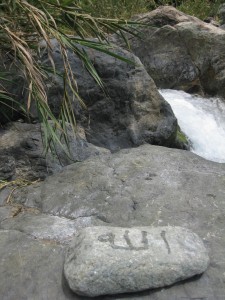
Subhanahu wa ta`ala
In the current storm of healthcare debate in the U.S. and the magnitude of public health concerns that it underscores, it is far too easy to overlook that while this nation faces tremendous concerns, other countries have been in forgotten despair for decades. Take for instance Egypt, a country thought of as middle income with continually improving development markings, has an infant mortality rate of about 27 deaths per 1000 live births (for comparison, Mexico’s rate is 18.42 and the US’s is 6), or Swaziland where life expectancy is the lowest in the world at 39.6 years (Afghanistan’s is 43.8)! These statistics are sad facts pointing to the reality that our entire global village is facing an epidemic.
As a medical student in the US, I necessarily focus on the diseases of affluence and learn how I will function in the big machine of a typical American hospital. This is the paradigm of medical school. But occasionally, we are bestowed with opportunities to broaden our horizons beyond that typical scheme while offering help and service to those out-of-reach people in desperate need.
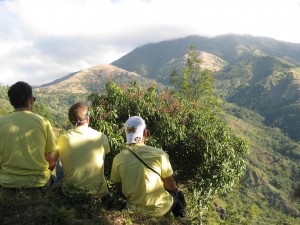
Sitting atop a cliff in the Blue Mountains with my fellow medical students and clinical volunteers.
This past spring by the grace of Allah (swt), I was blessed with just such an opportunity. Alongside nine of my classmates and two doctors from the University of Michigan Medical School, I ventured to the Blue Mountain region of Jamaica to offer medical care to a rural populace. Our trip was short and our skills were limited, but it is remarkable that my seven days in Jamaica taught me more about medicine than my entire first year of medical school. That is, if the value of a medical experience is measured by how well the activity fosters real-time knowledge, skills, and motivation towards the ultimate goal of providing healthcare, then certainly my time in St. Thomas’ Parish, Jamaica offered more to me than anything I had previously done in medical school.
From our days in the clinic (really a modified metal shack) where we saw everything from hypertension to parasitic infections to our hygiene and sexual education lessons in surrounding schools, our group offered the very best that young medical students can to a humble community with such extensive healthcare needs. As a country, Jamaica suffers from a great deal of intestinal illnesses and infectious diseases. And while the national health system run by the Ministry of Health is generally considered adequate for most Jamaicans, the residents in the rural townships of Hagley Gap and Penlyne in St. Thomas’ Parish have literally no access to healthcare. They are walled off by the Blue Mountains and despite the stunning scenic beauty, the isolation cuts off these residents from the rest of the country. They are forgotten. And yet, in such a rural backdrop medical care is desperately needed. In that vein, our group of medical students went to this area with the simple goal of benefitting these people.
As a Muslim, I firmly believe that this is the ultimate expression of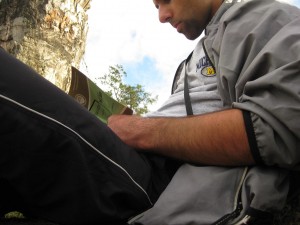 Islam. Surah Ma’idah in the Qur’an says, “And whoever saves one – it is as if he had saved mankind entirely” (5:32). From this ayah, we understand that to save one life is akin to saving all of humanity. The blessing of being a physician therefore is not a life of a luxury but the opportunity to save a life. And so my niyah [intention] as I boarded the plane to that modest Caribbean country was to benefit my fellow human beings. I was being privileged with the chance to serve, learn, and earn barakah [blessings]. Even in the short time I was in Jamaica, I remember one case that reminded me of that moving aforementioned verse.
Islam. Surah Ma’idah in the Qur’an says, “And whoever saves one – it is as if he had saved mankind entirely” (5:32). From this ayah, we understand that to save one life is akin to saving all of humanity. The blessing of being a physician therefore is not a life of a luxury but the opportunity to save a life. And so my niyah [intention] as I boarded the plane to that modest Caribbean country was to benefit my fellow human beings. I was being privileged with the chance to serve, learn, and earn barakah [blessings]. Even in the short time I was in Jamaica, I remember one case that reminded me of that moving aforementioned verse.
A young boy came to clinic after he had been playing soccer. Limping along with a bloody foot, it was clear he was injured. He was alone and spoke more Patois creole than English and we had a difficult time understanding what had happened. After scratching our heads for some time, we grasped the problem: a small nail had been completely lodged into his big toe.
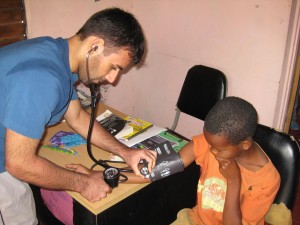
Checking vitals in Penlyne’s clinic
It was so deep that the outer portion of the metal was not even visible. The physical trauma aside, we reasoned that it was likely that this had already progressed to infection. Our supplies were limited but we were prompt to remove the nail and gave him the needed medication. We were later fortunate enough to see him again –happy and healthy – prior to our departure from the area and I smiled that however small our deeds were, they are definitely worthwhile.
While we offered welcome services to the people of St. Thomas’ Parish, I would contend that I learned far more from them. As rewarding as the warm hospitality and appreciation that the locals offered us was, seeing firsthand the intimate (and often gritty) diseases of poverty that affect so many billions of people worldwide – illnesses far removed from the diseases of affluence we see in the U.S – and feeling my Iman [belief] strengthened in the process is a profound blessing that I am sure I will smile upon for years to come. And while the Blue Mountains region of Jamaica is but one area amongst so many countless others where good medical work is needed, it is motivating to know that I was honored to offer a humble contribution.
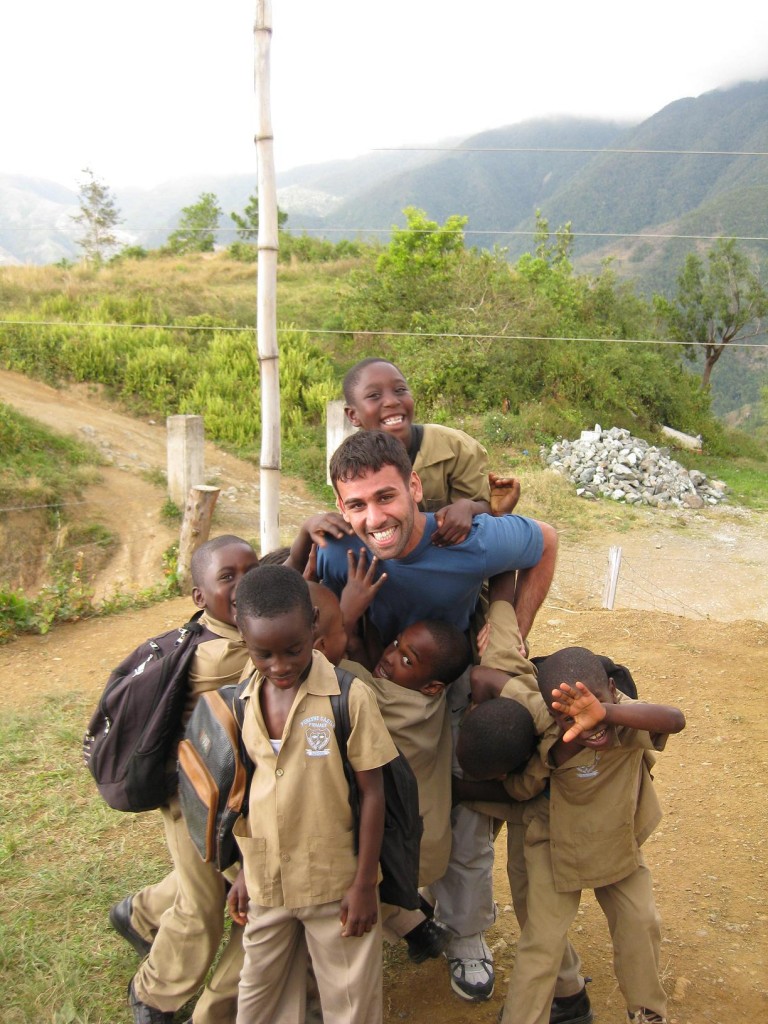
Enjoying the time with school kids in Penlyne Township.

MashAllah! We need more Muslim global activists!
Mashallah brother!
[…] Making a Difference: I | II | III | IV | V | VI | […]
[…] Making a Difference: I | II | III | IV | V | VI | VII | VIII | IX […]
Lovely piece and inspiring work. Are there other similar movements?